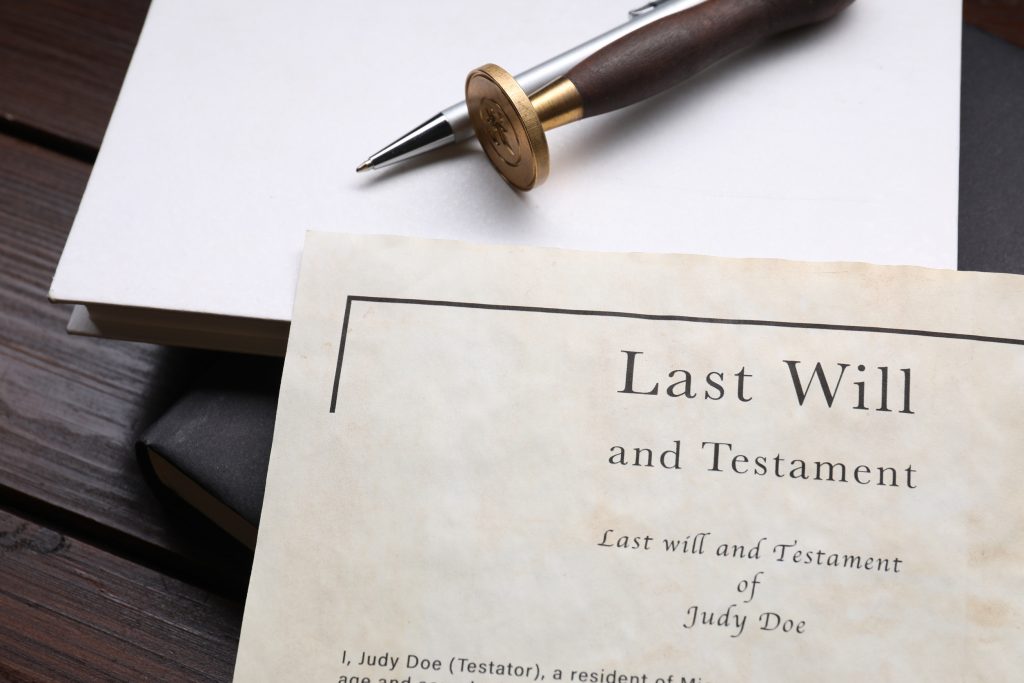
Creating a last will and testament is one of the most fundamental steps in estate planning. Many people believe that once they have a signed will, their affairs are in order and their family will be spared the hassle of court. Unfortunately, this is a common and costly misconception. While a will is essential, it does not automatically avoid the probate process. In fact, a will is designed to be a roadmap for the probate court. There are numerous situations where even a well-written will can’t prevent probate pain, leading to delays, expenses, and family conflict.
Here are 10 moments where a will might not be the seamless solution you expect.
1. When the Will Is Improperly Executed
Every state has strict legal requirements for how a will must be signed and witnessed. For example, it typically requires two witnesses who are not beneficiaries and who watch you sign the document. If these formalities are not followed precisely—perhaps a witness was in another room or was also an heir—the entire will can be declared invalid by the court, as if it never existed.
2. When Assets Aren’t Titled Correctly
A will only controls assets that are titled in your individual name at the time of your death. Many people mistakenly believe their will can override other legal designations. If your house is owned jointly with your spouse with rights of survivorship, the house automatically passes to them, regardless of what your will says. Understanding asset titling is crucial.
3. When a Beneficiary Is Disinherited
If your will intentionally leaves out a close family member, like a child or spouse, that person has the legal right to challenge the will in court. This can kick off a long and emotionally draining legal battle. The disinherited heir may claim you were under duress, lacked mental capacity, or were unduly influenced, forcing your estate into litigation.
4. When the Named Executor Is Unable or Unwilling to Serve
Your will names an executor to manage your estate. But what if that person has passed away, become ill, or simply doesn’t want the immense responsibility when the time comes? If you haven’t named a backup executor, the court will have to appoint one, which may not be the person you would have chosen and can cause delays.
5. When the Will Is Lost or Cannot Be Found
You may have a perfectly executed will, but if your family cannot find the original document after your death, it’s a major problem. While a copy might sometimes be accepted by the court, it’s a much more complicated process to prove its validity. Without the original, the court may rule that you died “intestate” (without a will), and your assets will be distributed according to state law.
6. When There Are Jointly Owned Assets with Rights of Survivorship
As mentioned earlier, jointly owned property with rights of survivorship passes directly to the surviving owner(s) outside of probate. This is common with married couples. Your will has no power over these assets, which can sometimes lead to unintended consequences if you wanted your share to go to someone else, like a child from a previous marriage.
7. When Assets Have Designated Beneficiaries
Assets like life insurance policies, retirement accounts (401(k)s, IRAs), and bank accounts with “Payable on Death” (POD) designations pass directly to the beneficiaries you named on those accounts. These designations supersede your will. If your will says your 401(k) goes to your spouse, but your ex-spouse is still listed as the beneficiary, the money will go to your ex.
8. When Someone Contests the Will’s Validity
Even if the will is perfectly executed, a disgruntled family member can still contest it. They might argue that the signature was forged or that you were manipulated into signing it. A will contest immediately throws the estate into a contentious and expensive legal fight, delaying the distribution of assets for months or even years.
9. When the Estate Has Significant Debts
Probate is not just about distributing assets; it’s also about paying off the deceased person’s debts. If the estate has complex or significant debts, creditors must be formally notified and given a chance to file claims. This process is managed through the probate court and can significantly prolong the settlement of the estate.
10. When Out-of-State Property Is Involved
If you own real estate in a state other than the one where you legally reside, your will must go through probate in your home state *and* a separate probate process, called ancillary probate, in the state where the property is located. This means your family has to deal with two courts, two sets of lawyers, and two sets of fees.
A Will Is a Start, Not a Complete Solution
While having a will is far better than having nothing, it’s crucial to understand its limitations. To truly prevent probate pain for your family, you may need to combine a will with other estate planning tools, such as a revocable living trust. Taking these extra steps can ensure your wishes are carried out efficiently, privately, and with the least amount of stress for your loved ones.
What part of the estate planning process seems the most confusing or overwhelming to you?
Read more:
7 Estate Planning Myths That Are Still Circulating in 2025
Estate Executors Are Warning Against Adding These 3 Emojis to Your Will
The post 10 Moments When a Will Doesn’t Prevent Probate Pain appeared first on Budget and the Bees.







